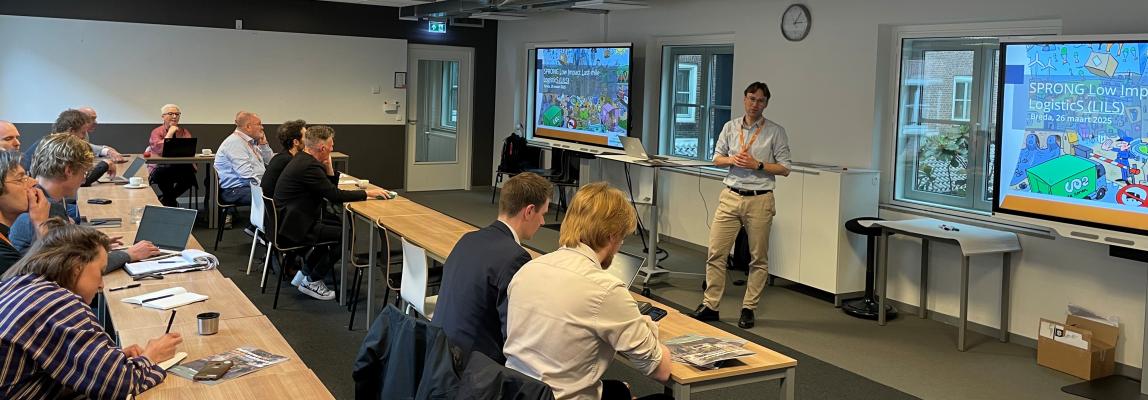
Successful Kick-off of SPRONG LiLS: Towards Sustainable Urban Logistics
04/01/2025 - 15:18
The launch of the SPRONG project Low Impact Last-Mile Logistics (LiLS) was a success. With an attendance of around 20 project partners, the foundation was laid at BUas for innovative, sustainable, and efficient urban logistics. The afternoon focused on networking and collaboration.